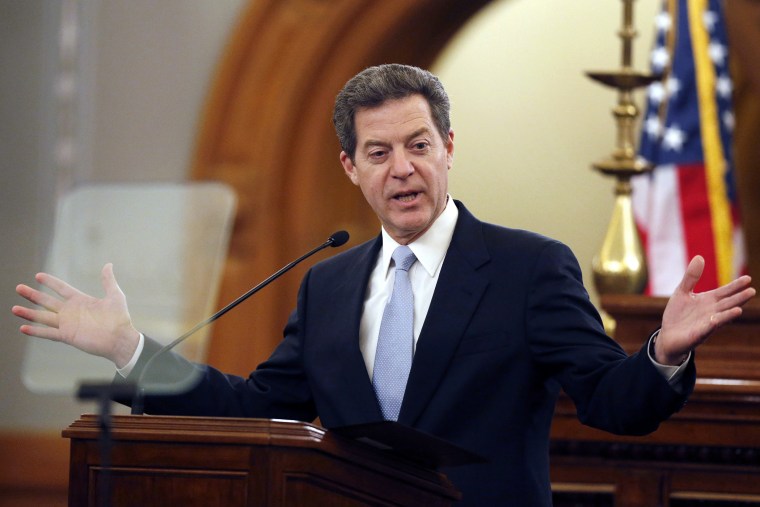The state of California made some headlines last week when the latest economic data found that the Golden State's economy is now
the sixth largest on the planet, passing France and Brazil. It was a striking milestone just in terms of California's sheer economic might.
But there was something else about the news with some political salience: when California raised taxes on the wealthy in 2012, creating one of the highest marginal tax rates in the country, conservatives
were certain the state's economy would take a severe hit. How'd that work out? The
Washington Post reported the other day:
California grew just fine in the year the tax hikes took effect... California's economy grew by 4.1 percent in 2015, according to new numbers from the Bureau of Economic Analysis, tying it with Oregon for the fastest state growth of the year. That was up from 3.1 percent growth for the Golden State in 2014, which was near the top of the national pack.
At the same time, Kansas Gov. Sam Brownback (R) slashed taxes, leading conservatives to predict great things for the state's economy. And yet, here we are.
The Kansas economy, on the other hand, grew 0.2 percent in 2015. That's down from 1.2 percent in 2014, and below neighboring states such as Nebraska (2.1 percent) and Missouri (1.2 percent). Kansas ended the year with two consecutive quarters of negative growth -- a shrinking economy. By a common definition of the term, the state entered 2016 in recession. [...] Kansas's gross domestic product is still less than it was at the end of 2011, said Menzie Chinn, an economist at the University of Wisconsin-Madison, who has been following Kansas's economy. Meanwhile, the economy in the rest of the country continues to expand.
In case it's not obvious, California and Kansas don't have much in common, and they have very different populations and industries. It wouldn't be fair to evaluate the two solely on the basis of size.
But it is fair to note that conservatives' predictions weren't even close to being correct about these two states -- though it hasn't caused much in the way of introspection.
Mother Jones' Kevin Drum
noted the other day, "This, of course, has caused conservatives to think long and hard about their contention that cutting taxes on the rich and slashing bloated budgets will supercharge the economy. Haha. Just kidding. What they've actually done is either (a) ignore Kansas or (b) spend lots of time trying to dig up reasons that Kansas is a special case and would have done even worse if Brownback hadn't stepped in. These reasons tend to be pretty ridiculous, but so far they've been good enough to keep the rubes in line. And that's what matters, right?"
